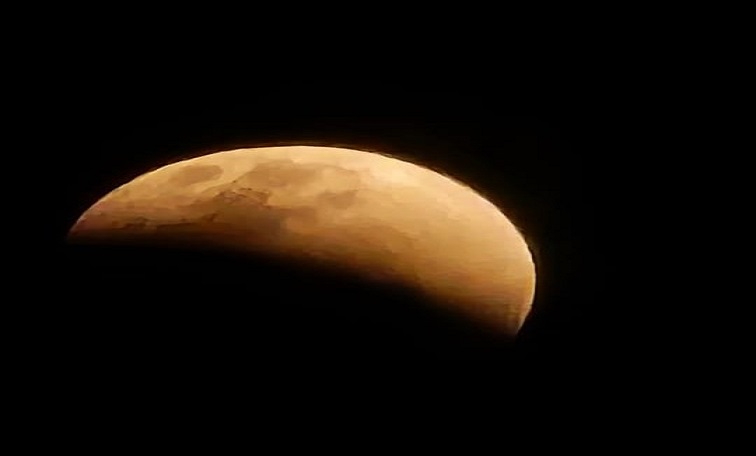South Africans have been treated to an unusual spectacle, the moon turning red as the Earth passes between the sun and the moon, causing a total eclipse.
The total lunar eclipse started at 20:10 on Sunday and lasted for more than half an hour.
The red colour shows that the longer red wavelengths of light are not scattered as much by the Earth’s atmosphere.
The red light originates from the sun, passes through the Earth’s atmosphere, and reaches the lunar surface.
A Limpopo traditional leader and healer, Mpatametše Mokgoadi explains the cultural significance of a lunar eclipse among Africans.
“The moon and stars hold various meanings in our culture. Often, a lunar or solar eclipse signifies the passing of a king. Additionally, when we observe a star moving rapidly with a long tail, it is believed to indicate that a king has died in that specific direction. Each star has its own significance, with some signalling impending rain and others indicating a period of drought.”
🌘 Look up, South Africa!
A breathtaking lunar eclipse is on the way 🌌. Don’t miss this rare celestial event as the Earth’s shadow dances across the Moon.Let nature’s wonder remind us how small we are, yet part of something so big. 💫#LunarEclipse #SkyWatch #CelestialWonder… pic.twitter.com/oLCtMN0rIi
— South African Government (@GovernmentZA) September 7, 2025
Although science explains it as an alignment of the Earth, Sun, and Moon, the blood moon has long been surrounded by mystery and superstition. For centuries, it was more than just a spectacle in the sky. It was considered a sign of danger, change, and the unseen forces of the universe. However, not all beliefs surrounding lunar eclipses are negative or scary. Some people view them as powerful moments of transformation and renewal.
Mkhulu NsingizA is the CEO of the Zindzi Mandela Foundation:











